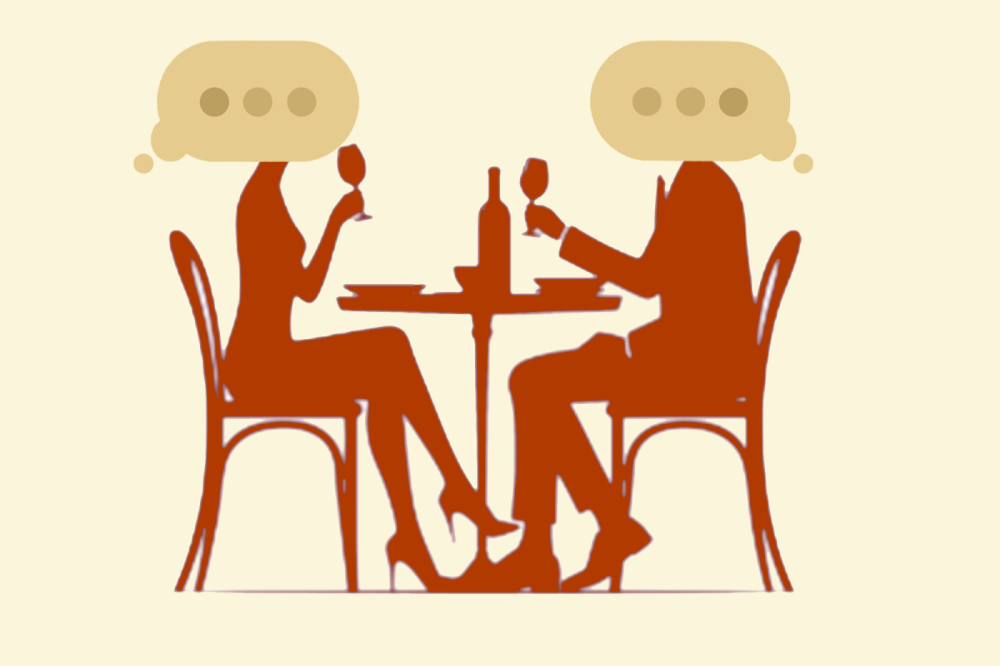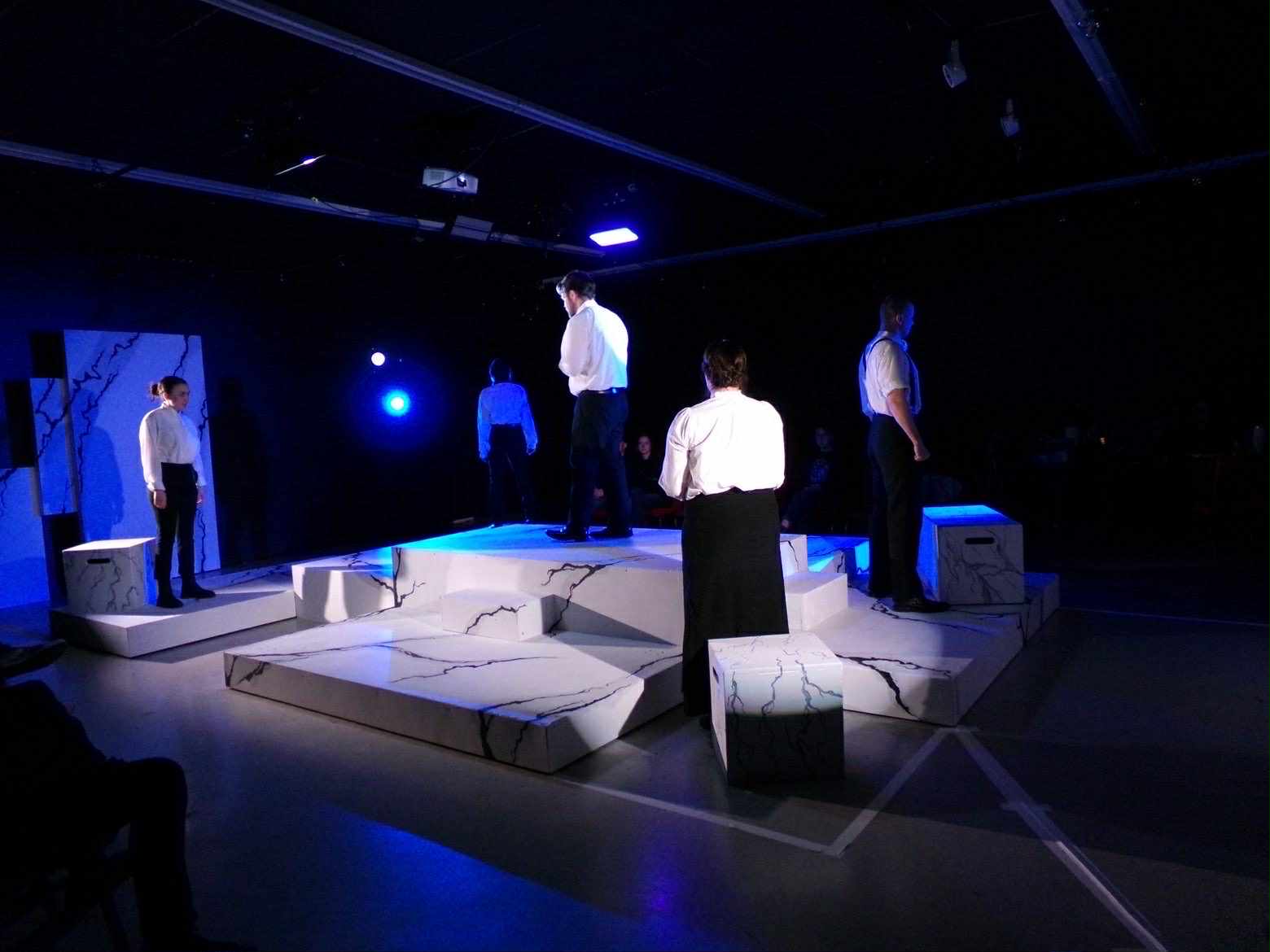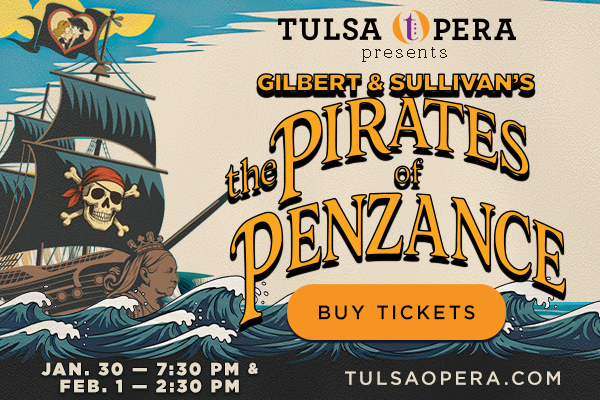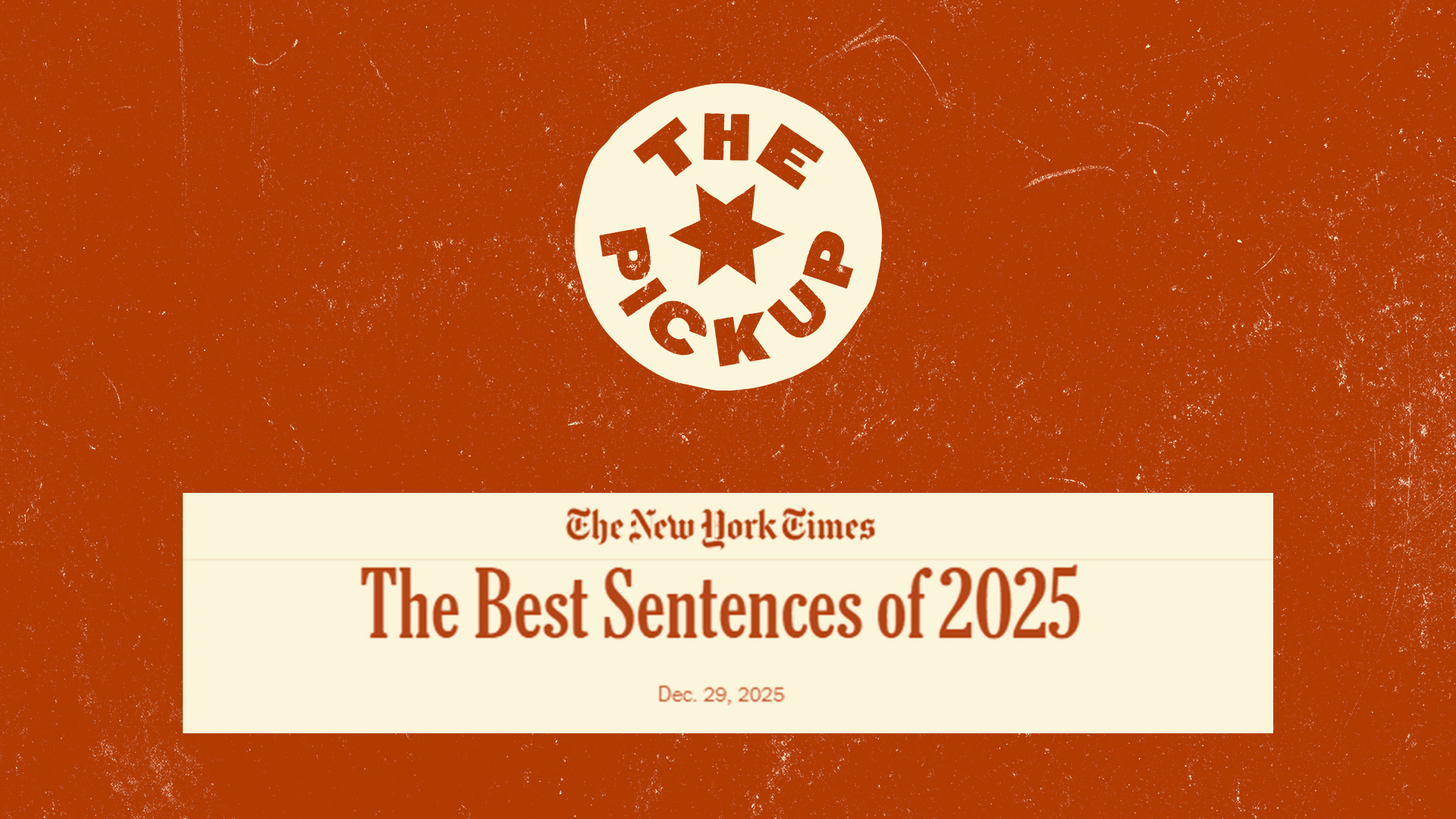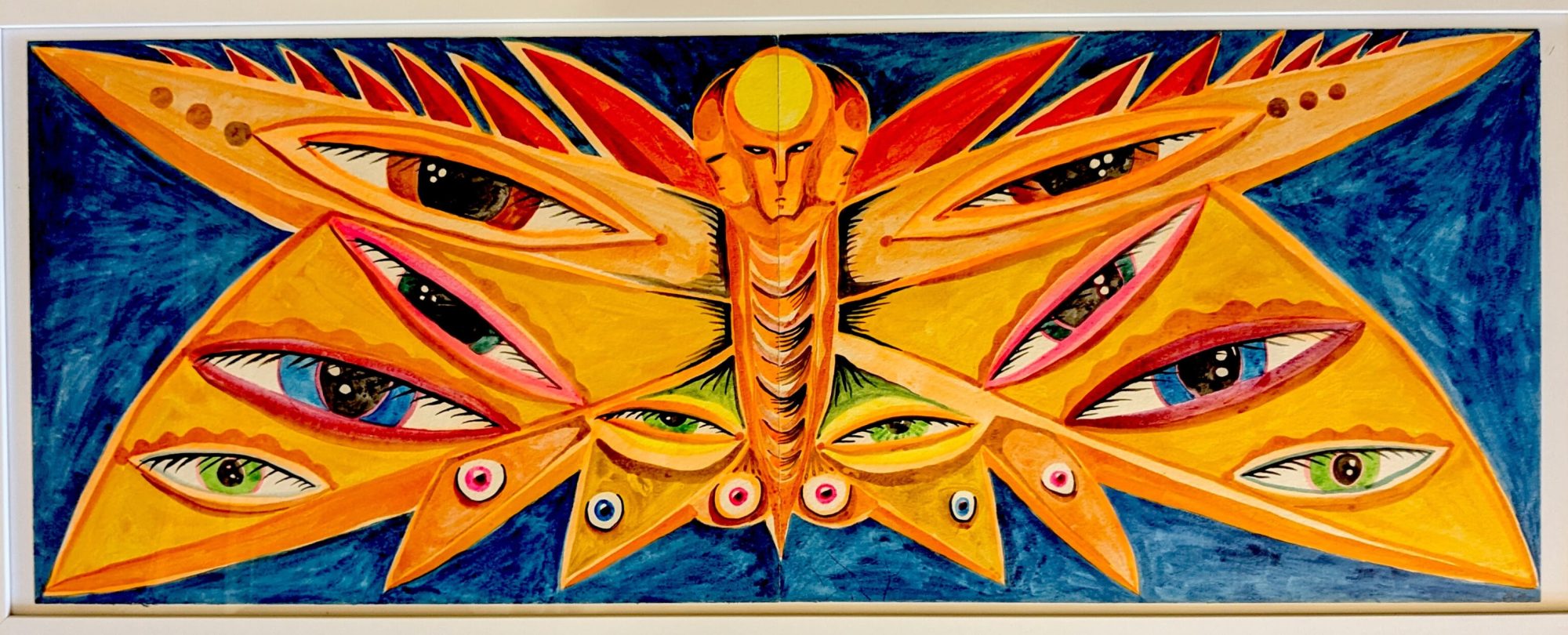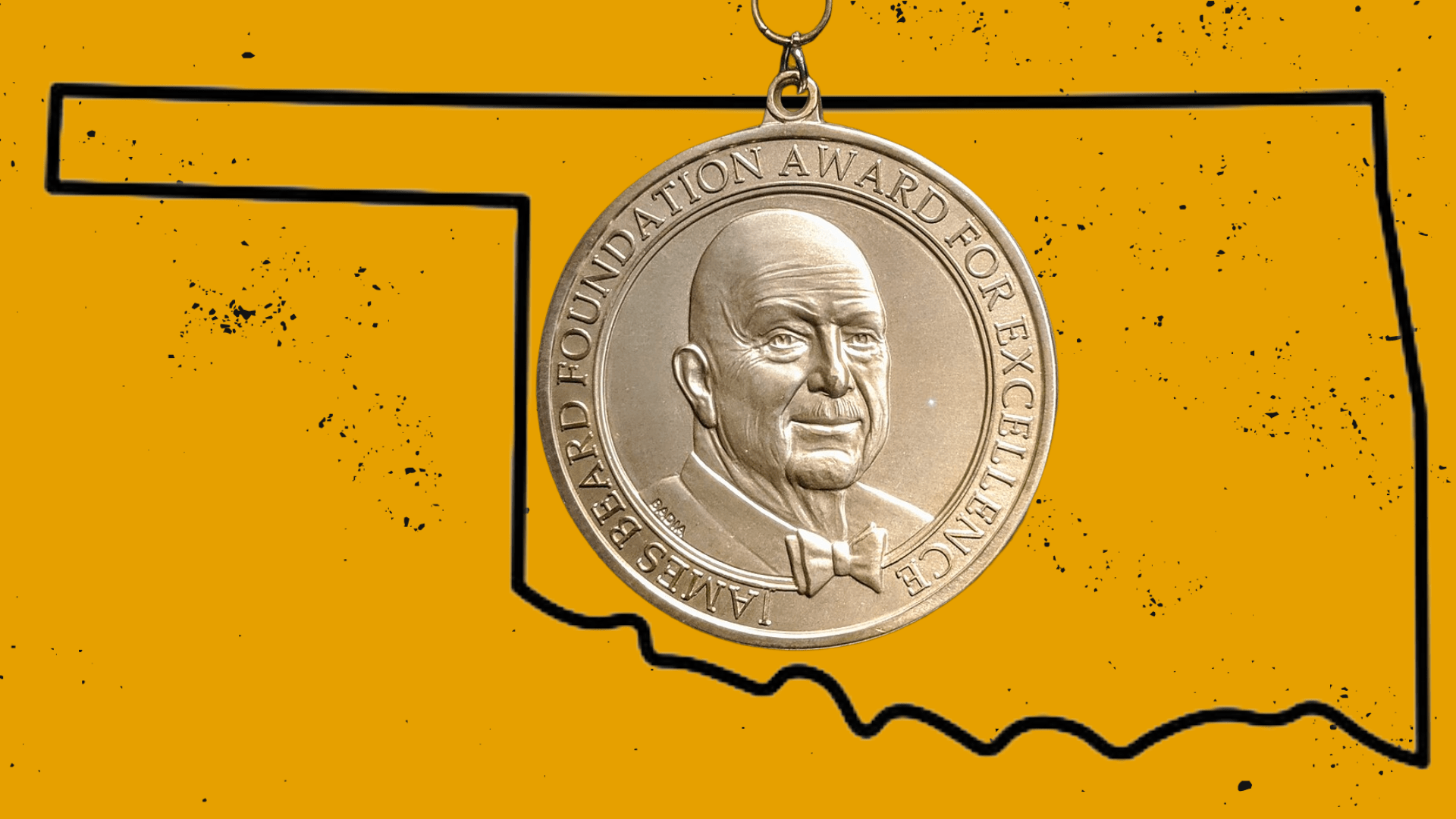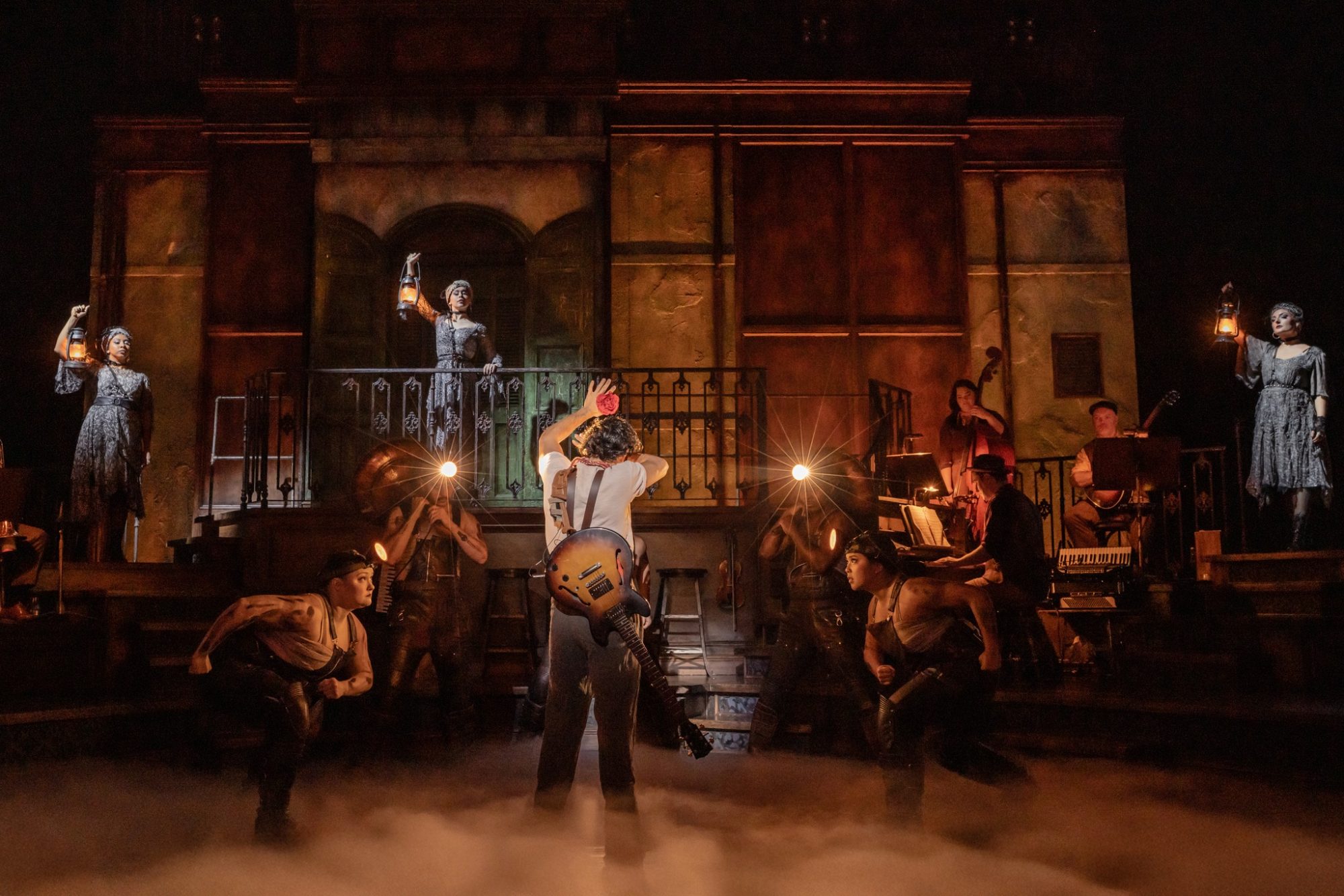My date showed up peacocking, in a silk shirt, with dice-themed rings and necklaces, and a very expensive-looking cowboy hat (odd, since he was from the east coast). He rattled off some obviously rehearsed flirty lines and some frankly odd beliefs about gender roles, then—when I was ready to bolt for the exit—whipped out a pack of gold playing cards.
“Let me show you a trick,” he said. “If I win, we’ll go grab a drink at Valkyrie.” I let him do his trick and then I bolted anyway. I went home, sighed, and deleted Bumble for maybe the fourth time since moving to Tulsa.
Sure, dating is difficult anywhere. But if you’ve ever dated in Tulsa, you, like me, may have thought: is everyone here already married? Are all the sane single people hiding in a bunker? If so, where is that bunker? Forget it, I’m going to buy some land with my friends and start a commune.
Even though I’ve had a couple of relationships in Tulsa, after enough lackluster and comically bad dates, I began to worry that “my person” just wasn’t here. I’ve lived and dated in places like Los Angeles, Brooklyn, and Philadelphia, and while those places all presented their own unique dating challenges (urban sprawl, flakiness, and shallowness in Los Angeles, for example), the challenge in Tulsa was a lack of viable options. As a woman in my early 30s, that was a problem. I wondered why I was struggling so much, and I thought the smaller dating pool might be playing a part.
How's The Water In Tulsa's Dating Pool?
I know I’m not alone in my feelings of frustration when it comes to dating in Tulsa. When you go by the numbers, it can be a challenging place in which to date, especially if you’re new to town, or on the north side of 30. It’s a medium-sized city in a state where a lot of people feel the social pressure to pair off when they’re young. The median age of marriage is about two years below the national median, and that generally means fewer people on the dating scene. Meanwhile, our divorce rate is relatively high as well. I’ve heard people joke that the best place to meet someone new here is outside the divorce lawyer’s office.
I talked to more than 20 people about dating in Tulsa for this story, and while a few said they didn’t think it was necessarily worse than it was anywhere else, many weren’t happy with the scene. Women reported seeing limited good options, and talked about stepping away from dating to focus on themselves—while a few guys reported similar complaints.
I sympathize with how hard it can be to find the right match; I can count on both hands how many times I’ve gotten dolled up for events, spent 20 minutes talking to a guy, and felt a good connection, only for him to casually mention his wife and kids. My girlfriends were all reporting the same thing. At a certain point, you could be forgiven for simply leaving town.
A few gay men and black women I spoke with gave up on finding partners in Tulsa and expanded their scope to Oklahoma City, Dallas, and beyond. “The third step of dating in Tulsa is flying to Chicago or Dallas on the weekends,” resident Michael Carney told me.
In Tulsa, 66.5% of Tinder users identify as men, so the dating app odds are already not great for the guys; when a guy starts narrowing down what he wants, it’s easy to swipe through all of the options in the area. Queer women online and at the Queer Women’s Collective monthly meetups mentioned religious trauma making it more difficult to date other women. And even in a city that’s majority Christian, some who want to date within their faith struggle to find someone aligned, because “people who say they’re Christian don’t always follow the same values,” according to Jaimee Anderson, a local dating coach.
Anderson started her dating business True to You Relationship Coaching after growing up in Tulsa and seeing a lot of divorce in her family, instead of marriages she wanted to emulate. She preferred dating coaching to marriage coaching, because dating is where successful marriages start. Eventually, the coaching grew into classes for adults and youth, and then into dating events. “I kept hearing people talk about the dating scene and thought I could do something about that,” Anderson told me. “I thought community was the main thing missing among singles in Tulsa.”
That same sense of disconnect led Melissa Schipke to launch Pitch-A-Friend in 2022 in a bar in Philadelphia. “I noticed that when people are out, they’re not speaking to each other anymore,” Schipke said. She saw people struggling to mingle in unfacilitated mixers and creating dating profiles that were not accurate representations of themselves. At Pitch-A-Friend events, people create fun three- to five-minute slide presentations to introduce their single friends to the crowd. Pitch-A-Friend enabled Schipke to celebrate the single people she loved and helped them make connections in a low-pressure, inclusive, and fun setting. The event has since spread to cities across the world, including Tulsa.
At a Tulsa Pitch-A-Friend event in January, Adam Avitable said transplants like him are often busy exploring the city, while locals are already locked into longtime friend groups or relationships. He pitched a friend using a funny slideshow that Photoshopped her into well-known Coca-Cola, cereal, and iPhone 13 ads. His friend made a connection that night, who joined her for karaoke.
When I asked Schipke how often she hears about matches being made from the events, she said, “Pretty regularly. I just got a DM from a couple celebrating their one-year anniversary!” Even if sparks don’t fly at an individual event, it’s still a space where people are having a good time and getting out of their comfort zones. That alone makes me feel more optimistic.
Carrie Bradshaw Was Right, It Turns Out
When I came to Tulsa in 2020, everything in my life was shaping up nicely. I found a fulfilling job, bought a house, got healthier, revived my writing practice, and built community. The one thing that wasn’t clicking? Dating. I’m a progressive, agnostic woman in her early thirties who wants kids and hasn’t been married, and I struggled to find men who wanted the same things.
I dated guys who had recently gone through messy divorces, one who conveniently forgot to mention he had kids, a poly guy who really wanted me to meet his girlfriend, another who said he’d be ashamed if his kids were gay (we argued about it), and a couple guys who only wanted to hook up. I quickly lost the shiny “dating in a new city” excitement and began to dislike the whole experience: swiping through the same faces on the apps, running into my exes because the town was so small, and having the IRL meets fizzle out.
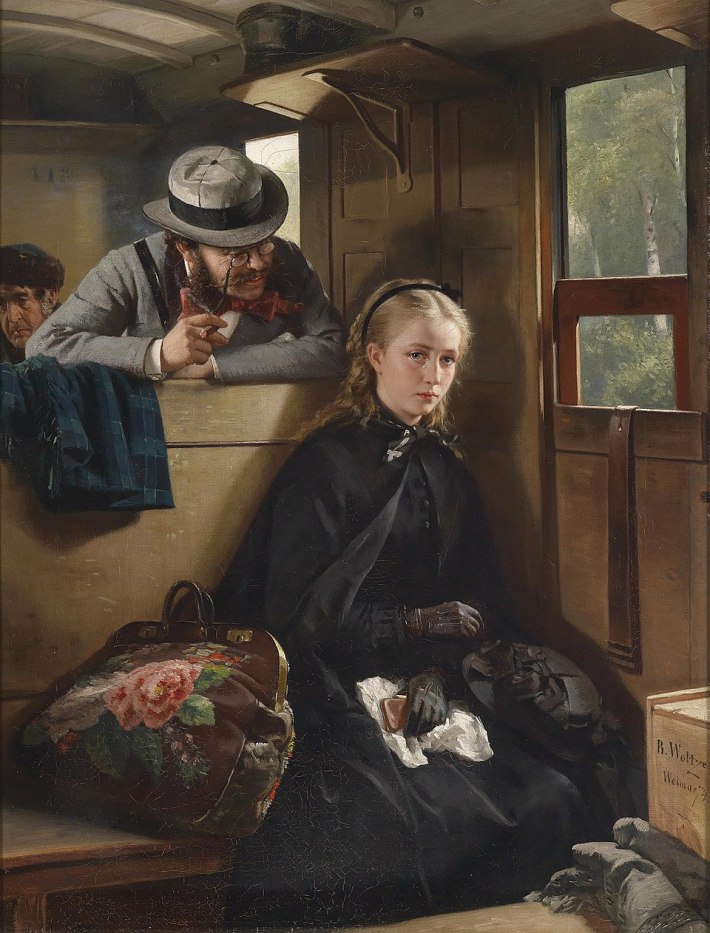
Of course, it wasn’t all bad. I had dates with a few genuinely kind men who simply weren’t the right matches. In two cases, it was actually me who wasn’t ready; in hindsight, both men would have been great partners.
I was close to decamping to Chicago in 2024, when a wise older friend gave me some advice I needed to hear:
“Look, even if you move, you’ll take whatever’s not working in your life with you.”
Ouch. But he was right. As long as I believed I couldn’t find anyone where I was, I probably wouldn’t. And I’d take that negative attitude with me wherever I went next.
I took a dating break. I deleted the apps knowing I’d return once I’d shed my defeatist mindset. I spent five months funneling all the energy I was putting into dating others into dating myself: improving my boundaries, dedicating tons of time to what fulfills me (writing), getting comfortable in my own skin, and taking an honest look at where I had messed up when it came to my love life.
I read How to Not Die Alone by Logan Ury, and gained clarity on how my learned dating habits were causing me to shoot myself in the foot. Turns out I was romanticizing the idea of relationships. After spending too long trying to make things work in a couple relationships that weren’t right for me, now I would find any reason to jump early, including not feeling the mythological “spark.” You know: the instant feeling of attraction and chemistry with someone. The spark certainly isn’t a guarantee for a healthy and loving relationship, but I’d started looking for it as a way to protect myself from future disappointment. I realized I was struggling to balance a healthy spark with mature curiosity and patience.
After my dating break, I was ready to stop getting spooked by unimportant signals and putting too much pressure on the first-date connection. I stopped fast-forwarding to thinking about how the other person would be as a long-term partner (cue the future-fantasy carousel my brain had ready to play on loop) and focused on two things: how the other person made me feel and if I wanted to go on a second date with them. That was it.
One last time, I thought, as I redownloaded Hinge last fall. Instead of feeling anxious or unsure, I felt hopeful. Excited.
Then a cute guy who was born and raised here sent me a Hinge rose. On our first date, something crossed my mind that hadn’t in a long time: I hope he likes me.
Wouldn’t you know it, he’s now my partner, and I’ve met his family.
In the end, I had to work on myself and my mindset before I met a person I fully clicked with. He was on a similar journey of personal work and intentional dating. If we’d met a couple years ago, we might have passed on each other. We wouldn’t have been ready, because we still needed time to grow on our own.
And I wouldn’t have met him at all if I had left Tulsa like I was planning to. I would’ve taken whatever wasn’t working in my life with me.
Get Out There!
Dating in Tulsa has its unique challenges. But awkwardness, lack of emotional intelligence, and fear of wasting time or being rejected are parts of the dating scene all over the world. We’re stretched thin by all the demands on our attention, and we occasionally become more guarded and disillusioned the longer we date. And while dating apps are tools that can expose us to new people, they can also flatten our humanity into a few photos and quips—or trick us into thinking our options are inexhaustible. (They’re not.)
Modern dating feels like a minefield; many people end up shattered, left behind, or stuck in the wrong relationship. But we keep navigating it, because companionship matters deeply to us, and we’re willing to take the risk and put ourselves out there. That’s why we redownload the dating apps, ask our friends to set us up, and sign up for speed-dating events, even when everyone says that dating, especially in Tulsa, isn’t worth it.
But the city is evolving. Tulsa County’s population grew by almost 25,000 since 2020. New people arrive all the time, and others who previously weren’t ready to date might be ready now, just like my partner and I were. A good number of people I know of different ages, genders, sexualities, and ethnicities used to say how terrible it was to date here, but are now happily dating people they met in Tulsa, some who already had kids and some who didn’t.
Remember Michael Carney, who said the next step to dating in Tulsa was to fly to another city? Well, he met someone here too.
The community being built through Anderson’s dating events and Schipke’s Pitch-A-Friend-Tulsa offer bright alternatives to the deluge of Likes and Super Likes that dating has become. Pitch-A-Friend-Tulsa went on hiatus, but is currently screening new hosts. There is an open call for people to reach out if they’re interested in helping others connect, and there are plenty of people in Tulsa who are ready to do that. Let’s get it restarted. I know some great people I’d love to pitch.
